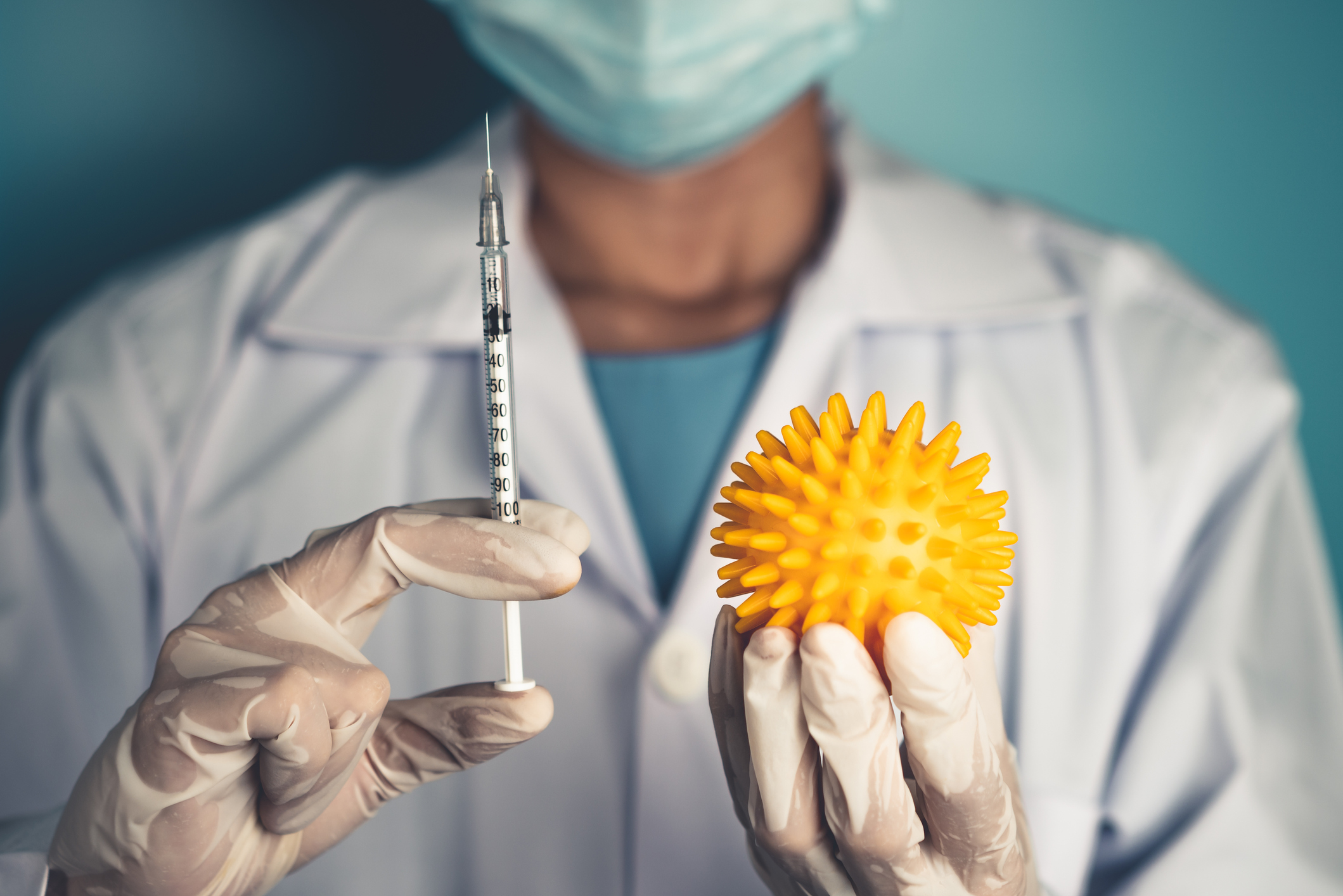Get Easy Health Digest™ in your inbox and don’t miss a thing when you subscribe today. Plus, get the free bonus report, Mother Nature’s Tips, Tricks and Remedies for Cholesterol, Blood Pressure & Blood Sugar as my way of saying welcome to the community!
Could one vaccine protect against this coronavirus — and the others to come?

The COVID-19 pandemic isn’t the first coronavirus outbreak the world has experienced. And it probably won’t be the last. There are still coronavirus strains present in bats that haven’t made the jump to humans, and many could be dangerous to human health. This is why scientists are hoping the antibodies produced to fight one coronavirus could help protect you from others.
SARS-CoV-2 (the virus that causes COVID-19) has a close relative, SARS-CoV, that has piqued scientists’ interest. SARS-CoV is the virus that caused the severe acute respiratory syndrome (SARS) outbreak from late 2002 to 2003. That outbreak sickened 8,000 people worldwide and killed 700 people. SARS-CoV shares about 80 percent of its DNA with SARS-CoV-2.
More importantly, both viruses infect cells the same way. On the surface of both coronaviruses, there is a spike (S) protein that has something called a receptor-binding domain (RBD). This binds to a human cell receptor called angiotensin-converting enzyme 2, causing the virus to merge with the host cell. But protective antibodies produced in response to the virus could bind to the RBD themselves and prevent the virus from infecting cells.
There’s proof that this happens with SARS-CoV, and researchers are curious to know if it works the same way with SARS-CoV-2. They’re also curious to know whether the antibodies from SARS-CoV could protect against SARS-CoV-2 and vice versa. If they could, that would mean it’s possible to create a vaccine that would protect against multiple coronaviruses. Here’s what they found in their research…
COVID-19 and SARS could potentially be stopped by the same antibodies
In a recent study published in the journal Cell Reports, researchers examined blood samples from 15 COVID-19 patients in Hong Kong. These samples were taken between 2 and 22 days after the onset of symptoms. They wanted to see if the samples contained antibodies that had the ability to bind to the RBD and other parts of the S protein on both SARS-CoV-2 and SARS-CoV. And some samples did contain these proteins…
Starting 11 days after the onset of symptoms, it appears COVID-19 patients produce antibodies that could potentially act against SARS-CoV-2 and SARS-CoV. But researchers didn’t stop there.
Next, they analyzed blood samples taken from people three to six months after they had a SARS-CoV infection. They looked for antibodies capable of binding to the RBD and other parts of the S protein on SARS-CoV-2 — and they found them. This shows that infection with one coronavirus produces antibodies with the potential to protect you from another one.
But does that mean a multi-coronavirus vaccine is right around the corner? Not quite…
Next, researchers moved on to cell culture experiments where they took a closer look at the antibodies produced as the result of SARS-CoV-2 infection. They looked at 11 blood samples taken 12 days or later after symptoms started. All of the samples contained neutralizing antibodies against SARS-CoV-2, but only one sample contained antibodies that could also neutralize SARS-CoV. They also looked at blood samples from people infected with SARS-CoV and had similar findings… none of the samples contained antibodies that could act against SARS-CoV-2.
What does all this mean?
Well, we know that antibodies act differently in the body when they’re actually fighting off a virus than they do in cell cultures. It’s been proven with other viruses — some antibodies may offer cross-protection against viruses in the body, even though they don’t protect cultured cells. But it’s far too soon to know whether there’s hope for a multi-coronavirus vaccine any time soon.
Stay safe, stay patient
As great as it would be to have a vaccine that would protect us from multiple types of coronavirus, I think right now, most of us would be happy with one that just tackled COVID-19, so we could get out of our houses are start living our normal lives again.
But it’s a waiting game at this point. Scientists across the world are working hard to develop something that can save lives, but viruses and science don’t operate by our deadlines. All we can do is be patient and hope for the best — and do as much as we can to not add fuel to the fire of this unpredictable pandemic.
Sources:












